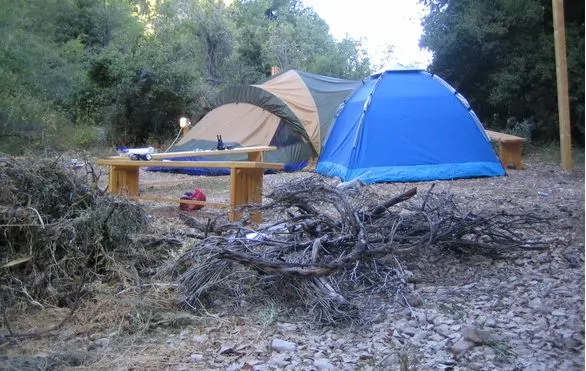When planning for survival, or when you find yourself in a survival situation, it is important to prioritize your needs. Keeping a level head and focusing on what is most important first can serve as a distraction to keep panic from setting in.
The body needs air, water, and food. These are the most basic needs to sustain life, and it typically needs them first in that order. You may additionally need shelter from the elements and external threats. In some circumstances the order of priority for these needs can shift and will need to be assessed on a case by case basis. For example, if the temperatures are below freezing, then you may need fire and or shelter before you will need food.
In planning for potential disasters in your environment, you should give thought to the following needs, and consider the different methods that would work well in your environment.
Air
Fresh air is one of the few things that the body needs in near constant supply all of the time. Besides the obvious causes of tainted or toxic air such as chemical and nuclear fallout, there are several natural causes that can put fresh air in short supply. Consider large wild-fires, which literally suck the oxygen out of the air. Staying low, using any kind particulate filters, and seeking to get out of the area affected are the best bets. Air scrubbers, gas masks, and oxygen tanks can sometimes provide short relief, but unless the situation is likely to be short-lived, evacuation should be the first priority if at all possible.
Water
Fresh potable water is one of most important things you will need, and you will need a lot of it in almost any survival situation. A minimum of two quarts of water per day per person is what is generally considered necessary to sustain you. Even when water is plentiful, it is often not safe to drink. It can contain particulates, chemicals, and organic bacteria. If no known safe water is available to drink and cook with, there are a number of techniques that can reduce the risk from consuming water procured from a variety of sources. It is very important to know how to obtain water, filter water , and sanitize water. These skills will help you to maintain and build-up your reserve of water even after disaster strikes.
Food
If the body is healthy and well-hydrated, the body can usually go quite some time without food. The body will live off the fat reserves; however going without food for too long will cause you to be light-headed and will certainly impact your ability to perform any strenuous activity. It is best to have built up a rotating stock of food so that you will always have food on hand in case of an emergency. You should also understand ways to procure and prepare food in any of the environments you could potentially be in at any point in time.
Shelter
Shelter is loosely defined here as anything that provides protection from the elements and / or from threats such as predators or even other people. There are a variety of shelters that can be constructed based on the needs of the current situation. A good shelter will provide warmth in the colder climates, shade in the hotter climates, and protection from any threats.


One thought on “Basic Survival Needs”